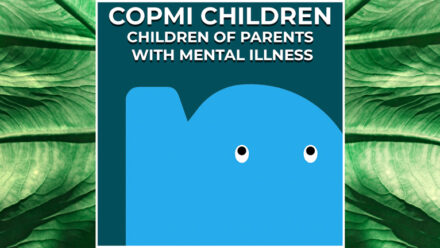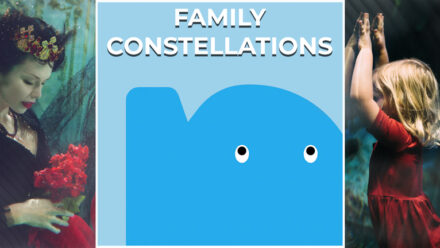
Support from your family and friends can make a huge difference when you are struggling with mental health. They can notice the early warning signs of upcoming psychosis or depression, and call a doctor or psychiatrist if things get worse. Having someone to talk to is also very important for preventing and dealing with mental health issues.
What you can do as friend or family
When you notice that a friend or relative is not doing well, your involvement can make a huge difference. Watch if the early symptoms persist over a long time. That would be a clear sign someone isn’t at his/her best. If so, the best thing to do is talk about it, openly, honestly and respectfully. This increases the chance that help is sought before things get out of hand. Before, during and after a crisis, friends and family can be crucial to a successful recovery process, both in a positive and negative sense.
Taking responsibility together
If you want to help, remember that not everything is up to you alone. What responsibilities would you rather leave to professional caretakers? And what can and will you do for a friend or relative with mental health issues? Sharing the burden and discussing who will do what, makes you stronger as a team. The overview below shows some supporting activities you could do.
Activities focused on the past
- Help to solve conflicts and issues from the past
- Join in someone’s process of grief, loss and acceptance, offering support by letting someone safely express and share all the accompanying emotions.
Activities for here and now
- Try to make someone feel connected and appreciated.
- Offer practical support: help clean up the house, do the groceries together or cook a meal together.
- Create a peaceful, stable and familiar environment. Offer a predictable daily routine and expect the other to participate in it.
- Offer comfort: people who are heading towards psychosis are often afraid and find it difficult to express this fear in words.
- Listen to them: being a friend or relative means you are a familiar face, which can be a great source of comfort amid the chaos they experience.
- Watch for signals: someone can get better or worse. As relative, you are an important source of information for caretakers, especially about the daily functioning of their patient.
- Express your worries: voicing your own concerns gives both the patient and other (professional) caretakers a better understanding of the situation.
- Gather collective knowledge: involving more people connected to someone in a mental crisis means there is more information about how this person is doing.
- Create a signalling plan or crisis map (alone or with the patient) in which you record the signals of an impending crisis and how (or how not) to respond.
- Take some distance from the situation when you notice the burden is getting too heavy for you.
Activities for the future
- Look ahead to the future together and make plans (no matter how small);
- Take some time together to find out what is best to do.
- Stimulate self-reliance and independence: motivate someone to take action and regain control of his/her own life, as soon as this is possible.
- Show that there is hope. Even the smallest gesture of comfort and sympathy can convince someone to stay strong.
- Redirect to professional help. As friend or relative you share a responsibility, but solving complicated issues is not up to you alone. Team up with a general practitioner, care worker or support hotline / organisation.
Admission: only as last resort
In a serious crisis, you as relative or friend should also take care of yourself. Someone in crisis needs professional help as soon as possible. Is the situation too much for you? Then seek help through your general practitioner and / or contact a family representative.
Early Intervention in Psychosis teams (EIP teams) and Flexible Assertive Community Treatment Teams (FACT teams) can offer support at home. In case someone still has to be admitted, be sure to check the family policy of the institution. This can inform you how friends and relatives will be involved in the care and admission of their patient.
Reach out to experience workers
Contact with experience workers, family organisations and peers can be very comforting. People who’ve had their own patient experience understand how it feels to deal with (serious) symptoms of mental illness, and how treatment, medication and the support of friends and relatives can influence the recovery process.
What you can do as friend or relative
- Be honest and truthful to each other, especially when conflicts might arise. Be aware of your own stress and concerns and realise that the person in crisis will notice this as well.
- Do not generalize or pigeonhole someone, and do not jump to conclusions too quickly. Nobody can predict how psychosis will develop beforehand, as this is different from person to person.
- Do not act like you are the professional caretaker.
Be aware of yourself
The challenge is to stay strong and be able to deal with a hectic situation in the right way. So how do you stay on your feet? Try to avoid ending up in the role of rescuer, victim, or persecutor. This happens all the time in personal interaction (it is called the drama triangle), so try to be aware of your tendency to fall into one of these roles.
This video can tell you more about the drama triangle and how to avoid it. Understanding the drama triangle and social dynamics is not only helpful for interaction with mental health patients, but for social situations in general.
- Be there, get in touch with your emotions and express how you feel.
- Offer help when you can, but look after yourself first.
- Only accept criticism when given in a respectful, understandable and precise manner.
- Check if you agree with the criticism.
- If not, express that you see things differently.
- If you do: take up your responsibility.
- Make friends.




